Experts warn of 3 most common reasons you're waking up sweating even though it's freezing
Plus tips on how to sleep better through the winter

Here at Tom’s Guide our expert editors are committed to bringing you the best news, reviews and guides to help you stay informed and ahead of the curve!
You are now subscribed
Your newsletter sign-up was successful
Want to add more newsletters?

Daily (Mon-Sun)
Tom's Guide Daily
Sign up to get the latest updates on all of your favorite content! From cutting-edge tech news and the hottest streaming buzz to unbeatable deals on the best products and in-depth reviews, we’ve got you covered.

Weekly on Thursday
Tom's AI Guide
Be AI savvy with your weekly newsletter summing up all the biggest AI news you need to know. Plus, analysis from our AI editor and tips on how to use the latest AI tools!

Weekly on Friday
Tom's iGuide
Unlock the vast world of Apple news straight to your inbox. With coverage on everything from exciting product launches to essential software updates, this is your go-to source for the latest updates on all the best Apple content.

Weekly on Monday
Tom's Streaming Guide
Our weekly newsletter is expertly crafted to immerse you in the world of streaming. Stay updated on the latest releases and our top recommendations across your favorite streaming platforms.
Join the club
Get full access to premium articles, exclusive features and a growing list of member rewards.
As winter draws ever closer — and with it darker days and cooler temperatures — most of us expect to be free of nights waking up hot and sweaty, throwing off the covers and trying all manner of sleep hacks to get through summer heat. But what if, despite the cold weather, you're still waking up sweating in the middle of the night?
Sleep can be tricky during the colder months anyway; shorter days mean darker mornings and evenings, which can increase melatonin production and disrupt your circadian rhythm, even contributing to winter insomnia.
Some people experience seasonal affective disorder (SAD) in fall and winter, which can lead to sleep issues like more frequent awakenings, lower quality sleep and daytime tiredness. But changes in the weather outside can also lead to issues with temperature regulation during sleep.
We've spoken to Dr. Hana Patel, NHS GP and resident sleep expert at Time4Sleep for her insights on the reasons you may be waking up sweating during winter, and we're sharing top tips on how to get a good night's rest throughout the colder months.
3 reasons why you're sweating at night
1. Your heating turns on at night
When it's freezing outside and all you want is to feel cozy in your bedroom, there can be a temptation to turn the thermostat up in the evening, or even schedule your heating to turn on during the night when you expect the temperature to be at its lowest.
Overheated bedrooms can cause continued restlessness
But those are actually big heating mistakes when it comes to your sleep, and could be the reason you're wide awake and sweating instead of happily snoozing all night long.
“Overheated bedrooms can cause continued restlessness throughout the night, resulting in delayed and disrupted sleep," says Dr. Patel.
Get instant access to breaking news, the hottest reviews, great deals and helpful tips.
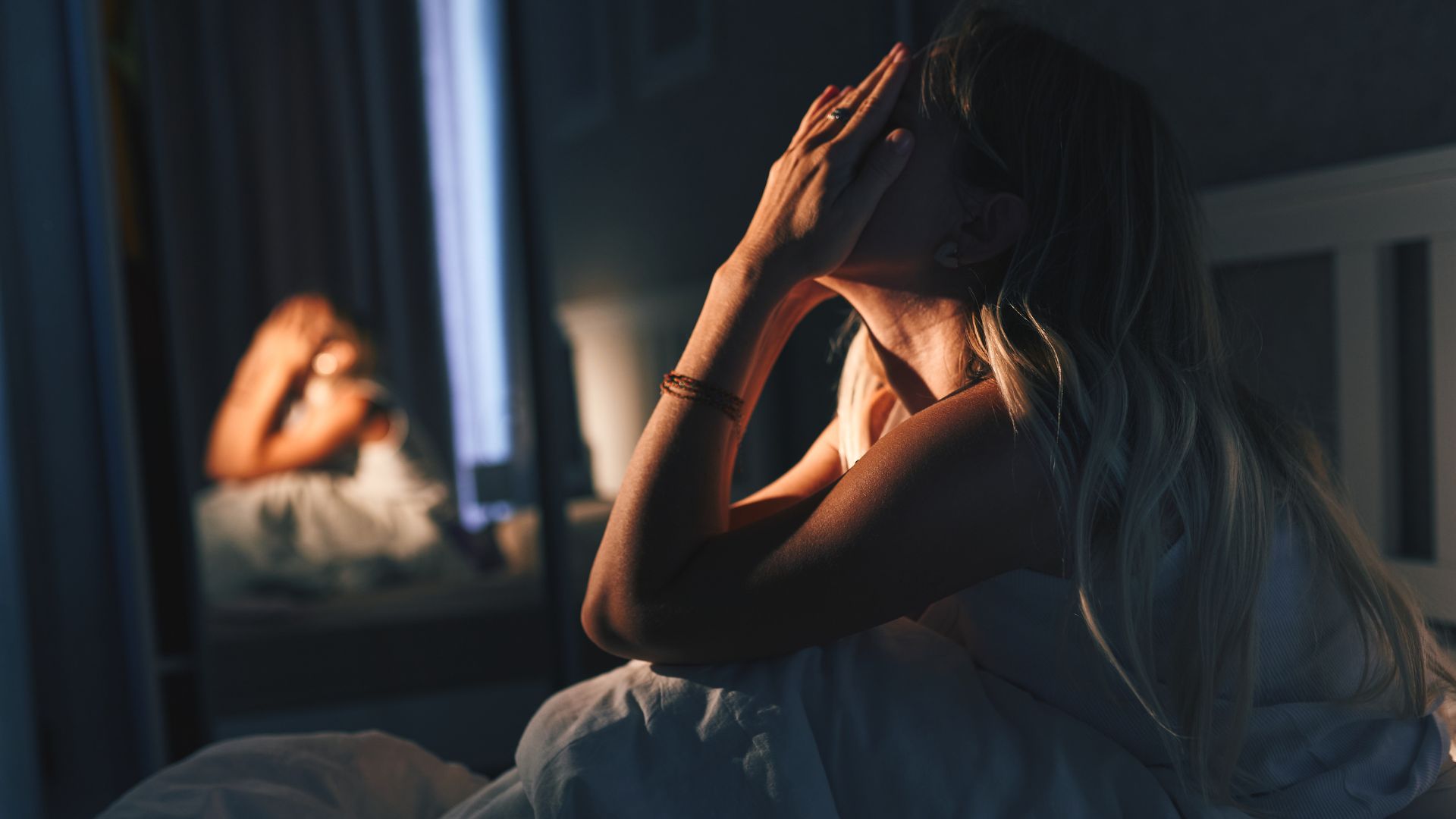
She also explains that overheating at night, even in winter, "can diminish the time you spend in the restorative stages of sleep which are crucial for physical and mental recovery and cognitive function. It can also disrupt your circadian rhythm — your body’s internal clock — which further impacts your sleep quality.”
A 2020 study found that the optimum temperature for sleep is somewhere between 65 to 70 F (18 to 21 °C) for adults, any more than that, and you're likely to wake up sweating.
2. You're experiencing night sweats
Waking up sweaty can be down to a bedroom that's too hot, or other lifestyle and environmental factors, but if you're excessively overheating at night on a regular basis, it's possible you're experiencing night sweats.
“It’s normal to sweat at night if the room or your bedding is making you too warm, but if you generally wake up with soaking wet pyjamas and bed sheets, you should see a doctor," explains Dr. Patel.
If you generally wake up with soaking wet pyjamas and bed sheets, you should see a doctor
Finding yourself drenched in sweat multiple nights a week, and perhaps also noticing other symptoms such as chronic fatigue, mood swings, weight loss, fever or irregularities with your menstrual cycle, can indicate you're experiencing night sweats.
“Night sweats are most commonly caused by menopause symptoms, anxiety, certain medicines like some antidepressants and painkillers, alcohol use, low blood sugar, or hyperhidrosis," says Dr. Patel.
Sleep disorders, including sleep apnea, can also cause and increase in night sweats, Andrea Matsumura, MD, MS, FACP, FAASM, board-certified sleep medicine physician at Sleep Goddess MD, previously explained to us.
If any of this rings true, be sure to speak to a health professional.
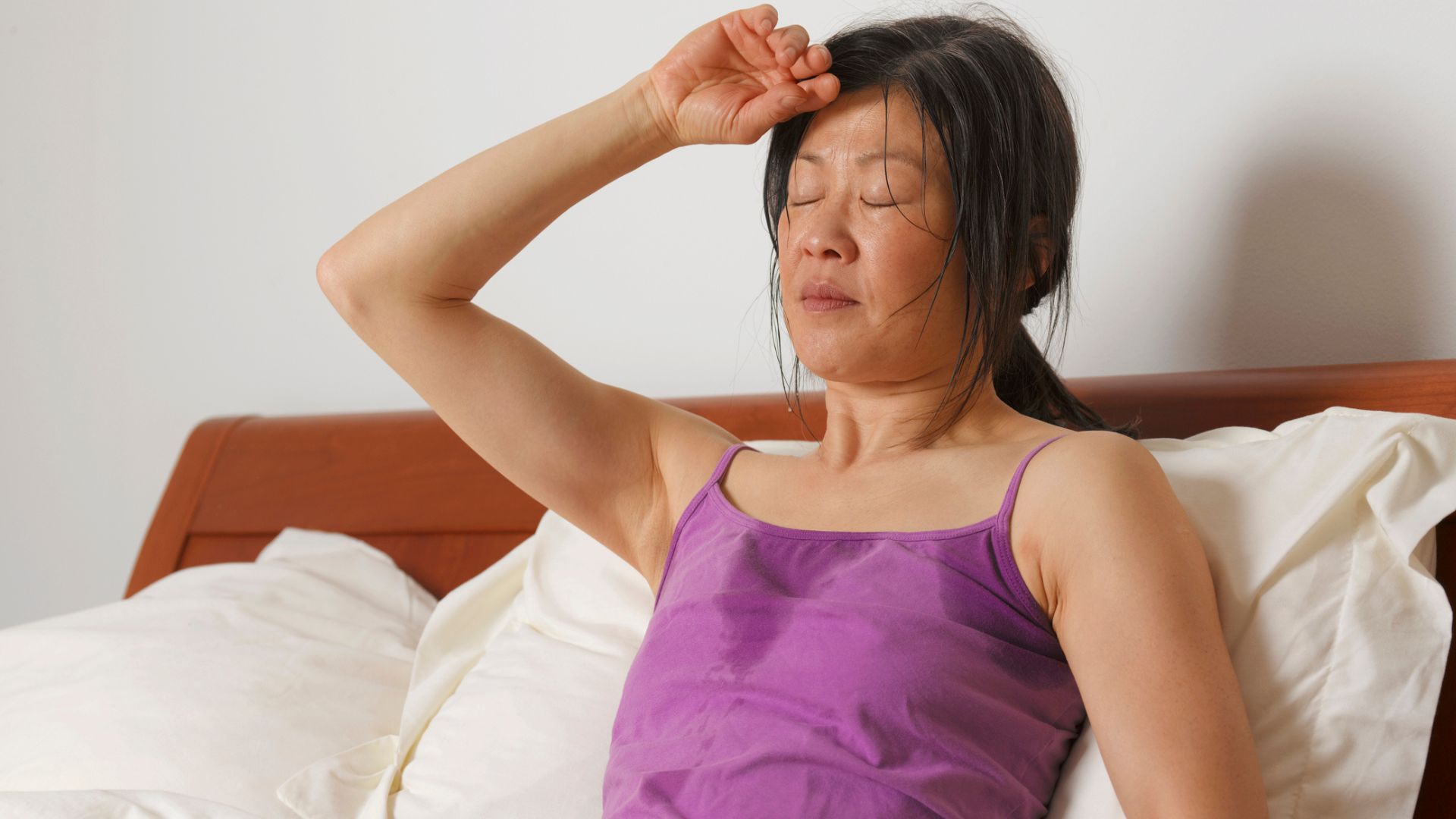
3. Your bedding and pajamas are trapping heat
Insulation is important in winter, we get it. But if you switched out your summer duvet for a high-tog option and put your fleece, or flannel, winter pajamas back into rotation, it's possible you're trapping too much heat and causing sweating.
Dr. Patel explains that a thicker, high tog duvet is a really effective way to help you stay warm in fall and winter, and can actually help to keep you at a comfortable temperature so you can get a better night’s sleep, but it's all about the materials its made from.
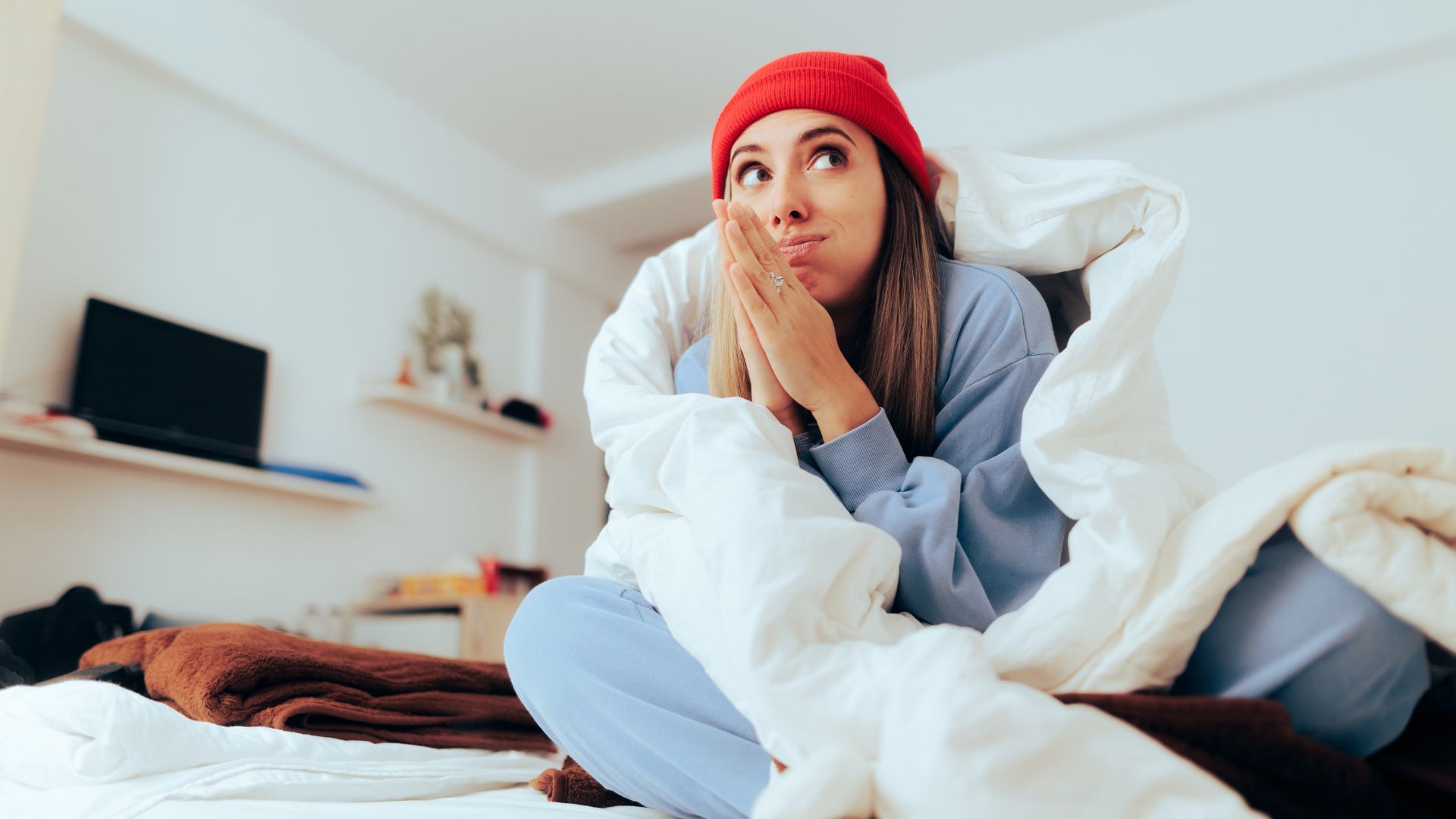
“If your duvet is made from synthetic materials, like polyester, a thicker one can sometimes block airflow, causing humidity and sweat to build up," she explains.
"The discomfort caused from this can disrupt sleep, so it’s important to find the right duvet that works for you," Dr. Patel says (we've got you covered with some duvet and bedding tips for winter below).
She adds that while layering up pyjamas can feel cosy at first, "too many layers can actually disrupt your sleep. This is because overheating can pull you out of deeper sleep, leaving you more restless and feeling less refreshed when you wake up.”
How to sleep better in winter
Getting a good night's sleep in winter can be challenging, and temperature isn't the only culprit. Here are some simple tips to help you rest well in colder weather.
Get plenty of daylight
Daylight might be in shorter supply over the fall and winter months, but it's important to make the most of what there is. Getting a dose of natural light, particularly in the mornings, helps to reset your circadian rhythm (your body clock).
How? Well, daylight prompts the release of sleep hormones such as cortisol (for alertness) and serotonin (which promotes a positive mood and is a precursor for melatonin, which helps us sleep).
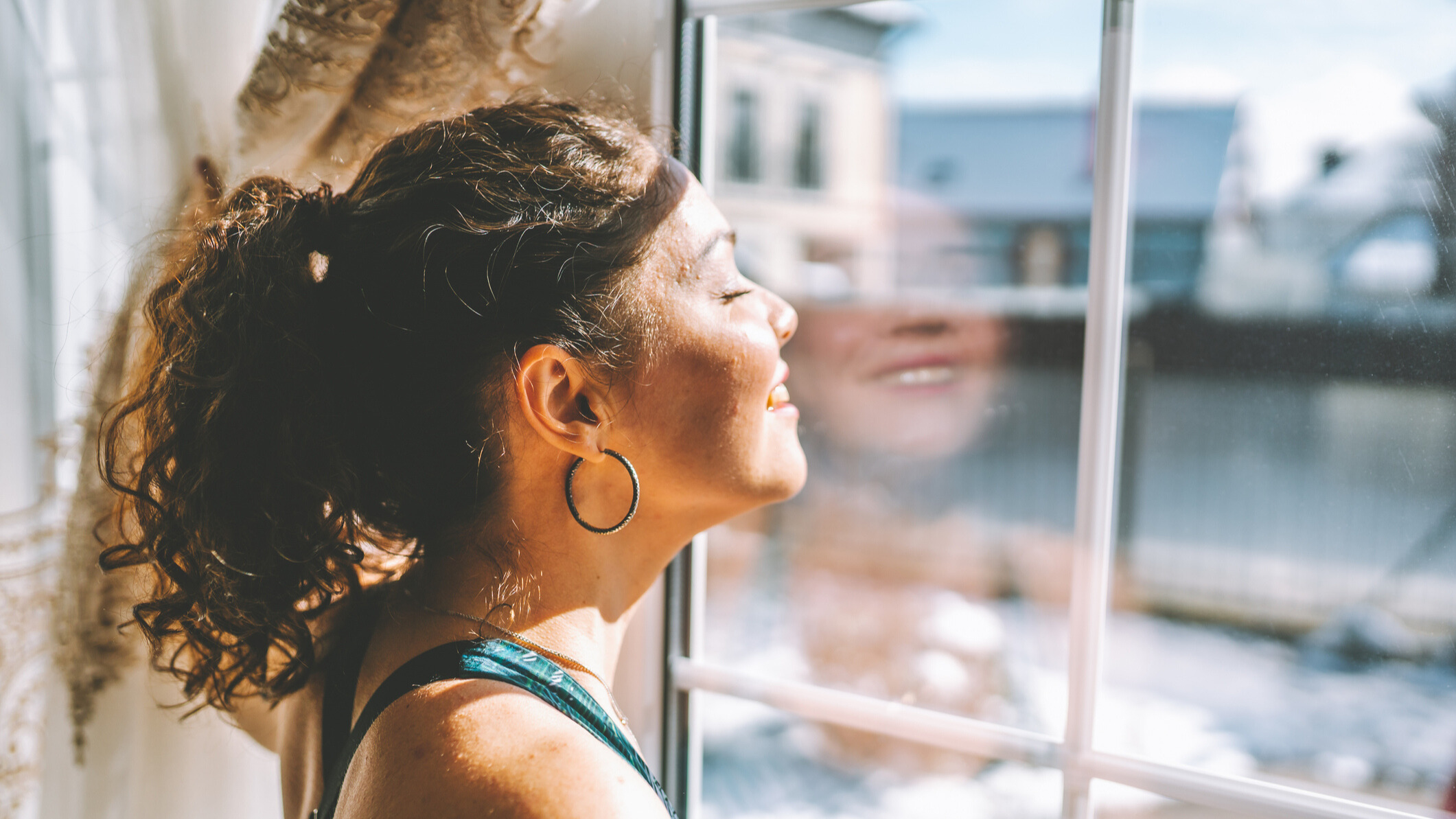
"Starting your morning with natural daylight helps to reset your circadian cycle and sends a 'wake up' signal to your brain," Dr. Nerina Ramlakhan, a Neurophysiologist and sleep expert at Oak Tree Mobility has told Tom's Guide.
A well-regulated circadian rhythm means that you'll naturally release melatonin at the right time at night to help with sleep onset and a good night's rest.
One study even found that participants who were exposed to daylight in the morning experienced fewer nighttime awakening and better sleep efficiency (which is the amount of time you are asleep of the total time you spend in bed).
Give your bed a winter make over
Layering up your bedding for fall and winter is a very sensible way to approach the change in seasons, but you need to take the right approach.
“Using layers and breathable bedding is an effective way of keeping you warm at night without overheating, as natural fibres trap heat but let moisture escape, and you can remove layers as needed," Dr. Patel explains.
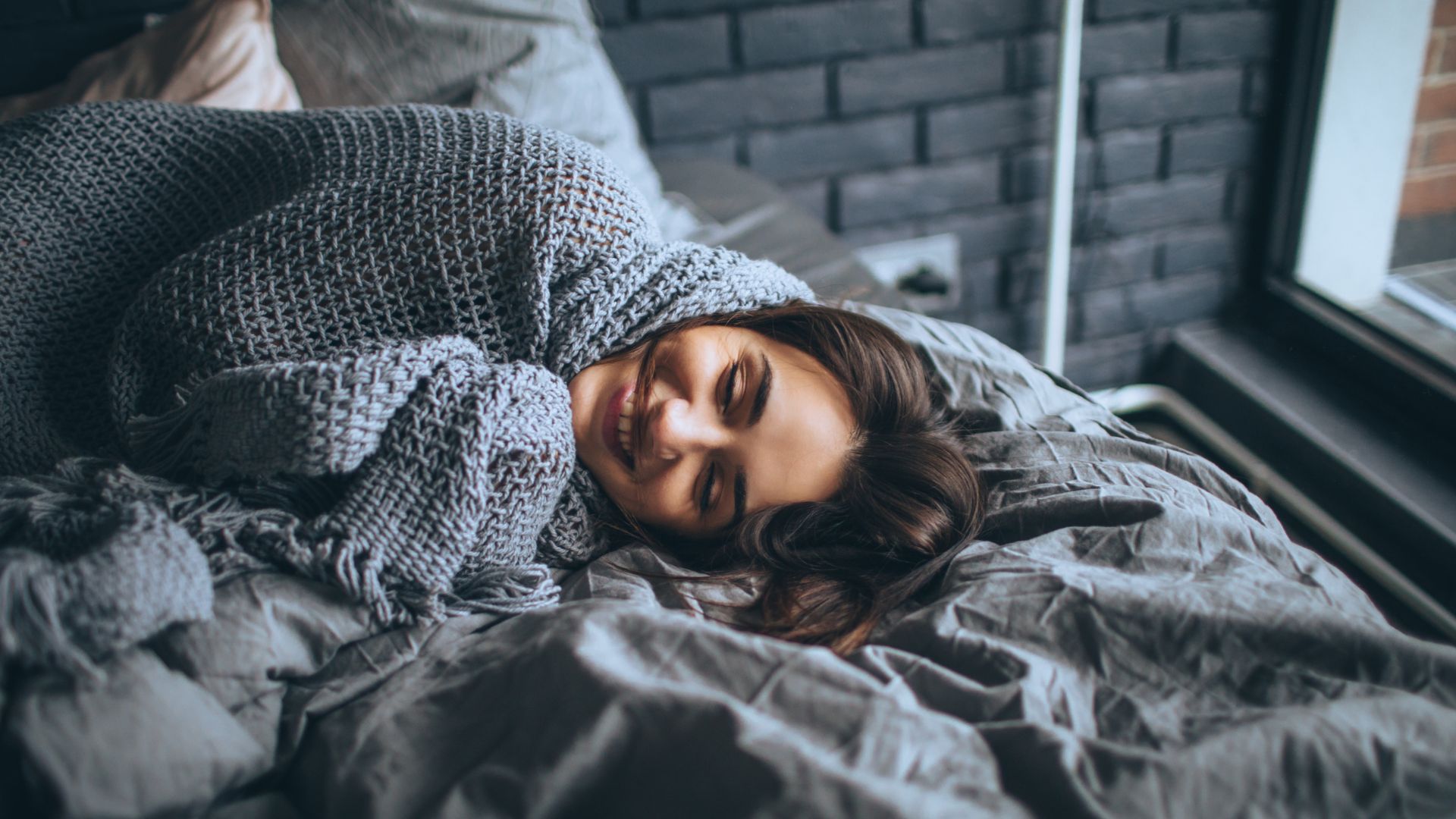
You can swap your light summer duvet for a thicker one, but consider a down filling, which is light and insulating. Adding layers of blankets gives you the option to adjust the temperature of your bed as you need; the best weighted blankets provide coziness and can help you fall asleep faster as they mimic deep touch pressure therapy, relaxing you and helping to reduce stress and anxiety.
Bedding-wise, natural materials like bamboo, linen and cotton are great as they don't trap heat like synthetic fabrics can, instead being breathable and temperature-regulating. Opting for a denser sateen weave for the colder months gives you those benefits with a cozier feel.
Dr Patel also explains that if your hands or feet are cold, "blood flow is restricted which in turn delays falling asleep." She suggests trying "thin socks or lightweight gloves to keep your extremities warm and support a deeper, more restful sleep.”
Try a sunrise alarm clock
One of the biggest disruptors to your circadian rhythm in fall and winter is the lack of daylight in the mornings, which is where a sunrise alarm clock can really help.
“It’s difficult to wake up in the dark because our bodies depend on light to suppress melatonin, the hormone responsible for making us feel sleepy," Dr. Chelsea Perry, owner of Sleep Solutions, explained to us.
And, as well as leaving you groggy, a lack of light exposure early on means your body clock isn't going to function as effectively (see 'Get plenty of daylight' above) potentially making it harder to fall asleep later on.
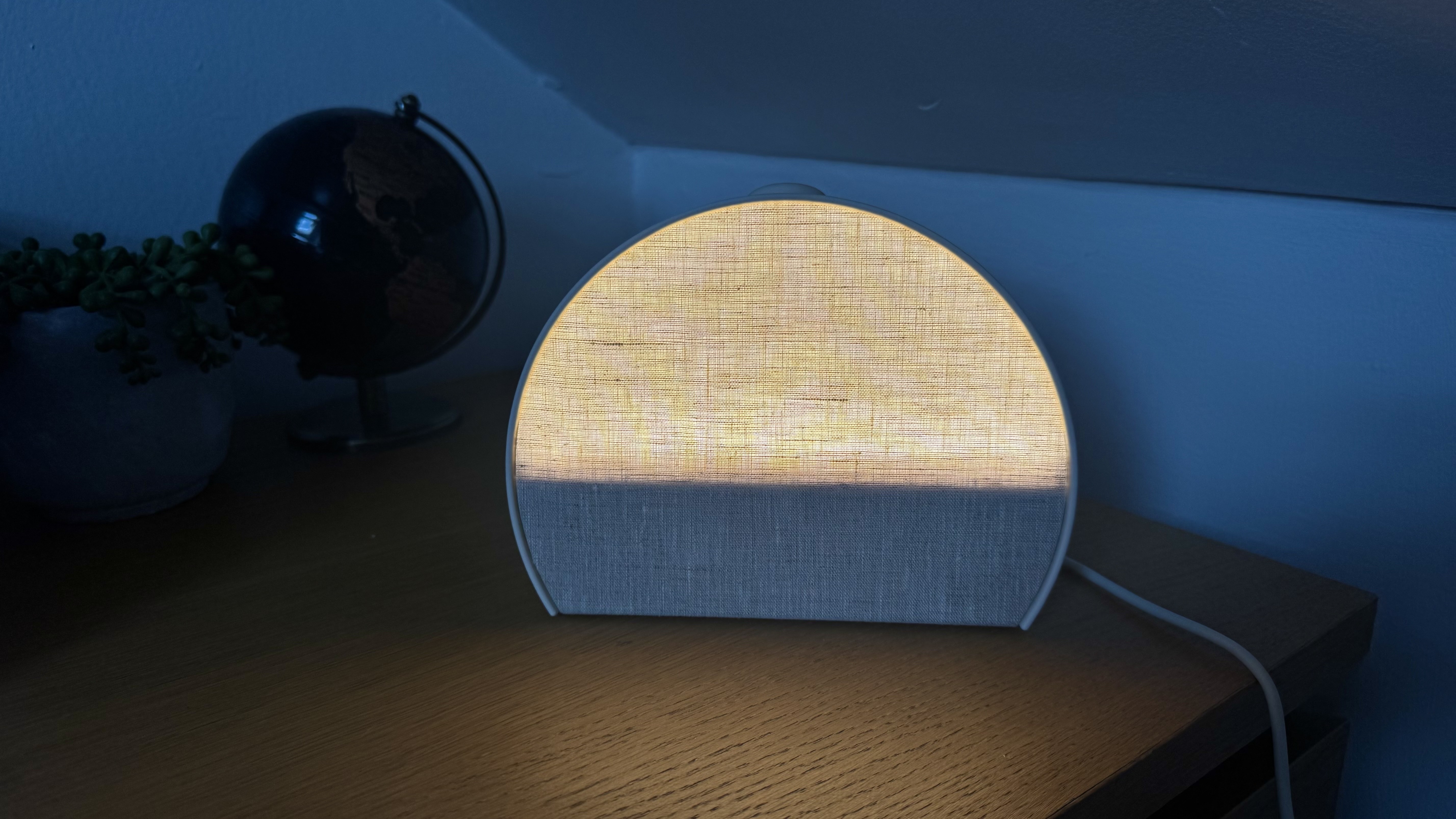
The best sunrise alarm clocks get around this by effectively imitating a natural sunrise; gradually increasing the brightness of their light over a period of time (say, 30 minutes), before an alarm sounds. They also typically come with preset alarm sounds that are gentler than your average phone options.
Some of the most advanced ones, including the Hatch Restore 3 (which currently has a rare $30 discount), also have a sunset function and sleep sounds to help you ease into sleep.
Reduce light in the bedroom
While we appreciate the role light plays in suppressing melatonin during the morning and daytime, when it comes to night time, it's equally as important to avoid it.
“I would recommend reducing the amount of light in the bedroom, whether this be artificial light or natural light," says Dr. Patel.
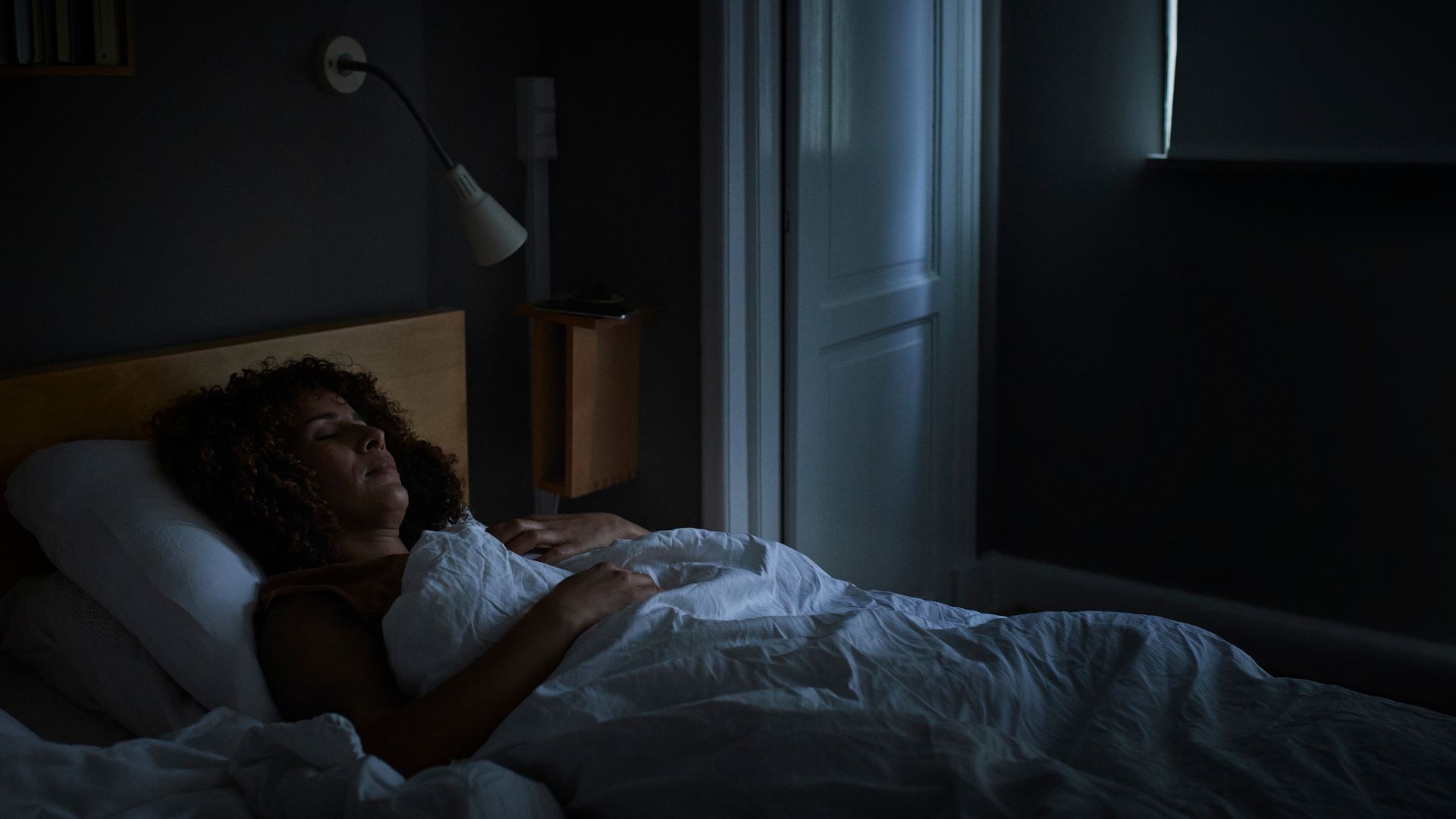
"If your curtains or blinds don’t already block out light from the outside, think about installing some blackout curtains, which will ensure all light is blocked," she explains.
Of course, blackout curtains might be outside your budget, and if that's the case, a sleep mask is a more affordable way to prevent light pollution from disrupting your sleep.
Establish — or stick to — a nighttime routine
“The best way to improve your sleep is to establish a regular nighttime routine. If you create good healthy bedtime habits, you will develop a regular sleep-wake cycle, which will programme your body to sleep better during the winter nights and make you feel more rested in the day," says Dr. Patel.
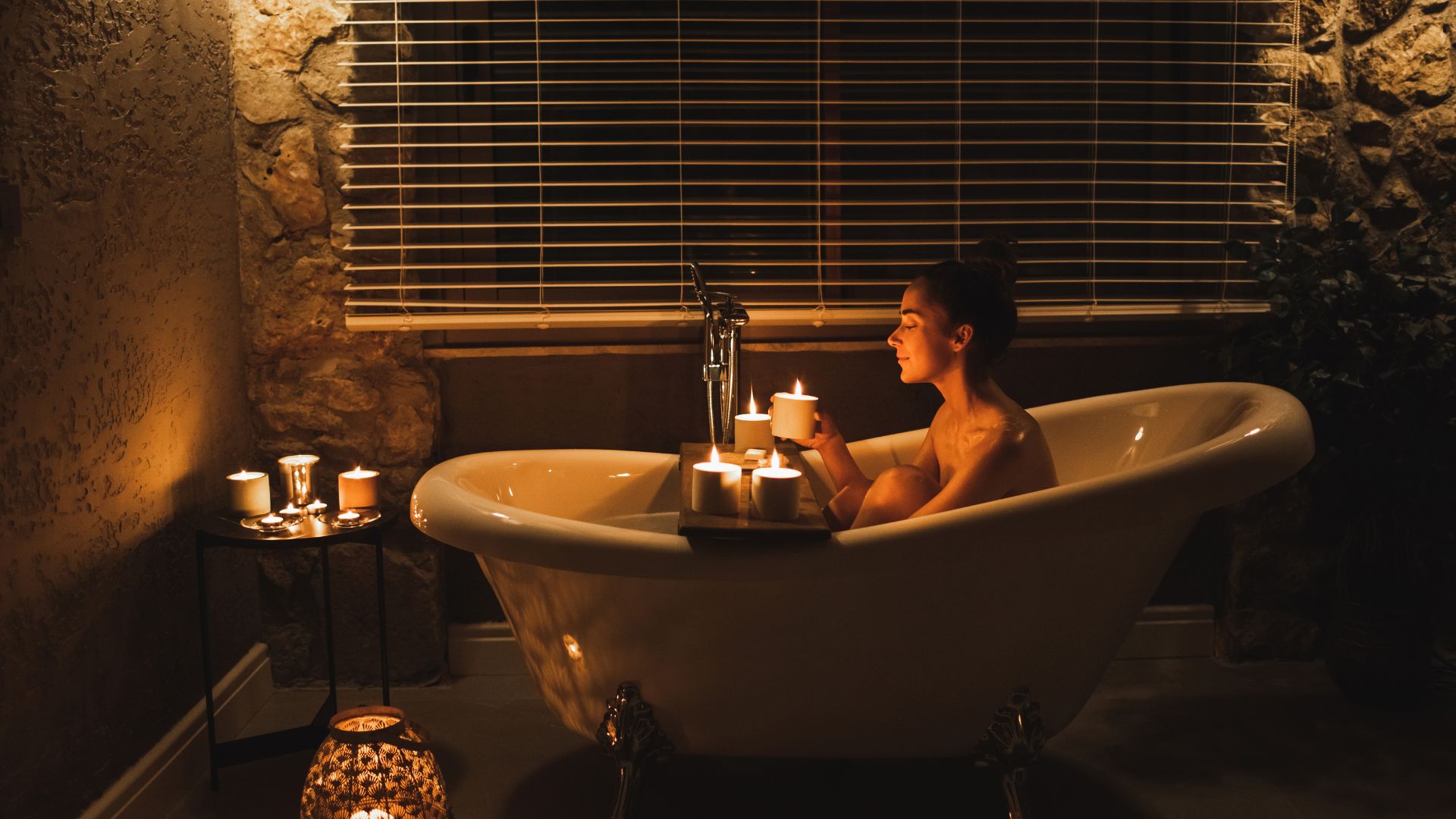
Here are some of her suggestions to include in your nighttime routine:
- Try to go to bed at the same time every night, and wake up at the same time each morning.
- Avoid alcohol and smoking before sleep.
- Eat your evening meal about three hours before bedtime.
- Try to switch off screens one to two hours before bedtime, and take screens out of your bedroom at night. Light from a screen tricks your brain into thinking it is daytime, and can stop you from getting into deep restorative sleep.
- Do eye-hand co-ordination activities, such as drawing or puzzles, instead of using screens.
- A relaxing activity, such as a warm bath, before bed can be helpful.
- Ensure you have the right sleeping environment, providing you with the comfort, temperature and lighting you need for a good night’s sleep.
Jenny Haward is a U.K. based freelance journalist and editor with more than 15 years of experience in digital and print media. Her work has appeared in PEOPLE, Newsweek, Huffpost, Stylist, ELLE, The Sydney Morning Herald and more. Jenny specializes in health, wellness and lifestyle, taking a particular interest in sleep.
You must confirm your public display name before commenting
Please logout and then login again, you will then be prompted to enter your display name.
 Club Benefits
Club Benefits










